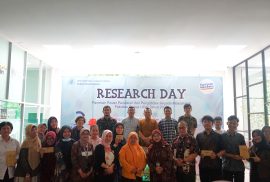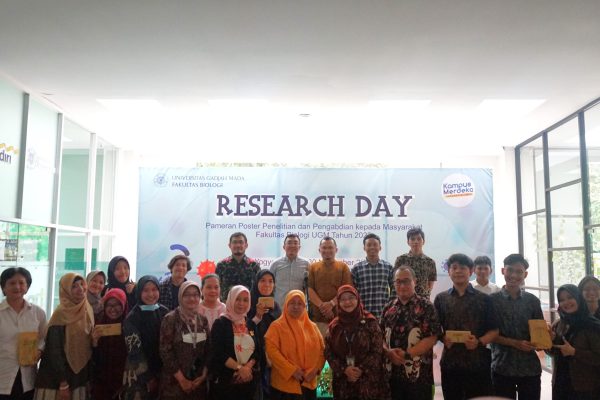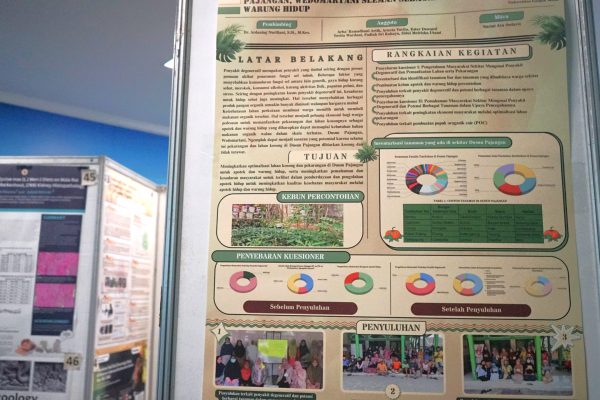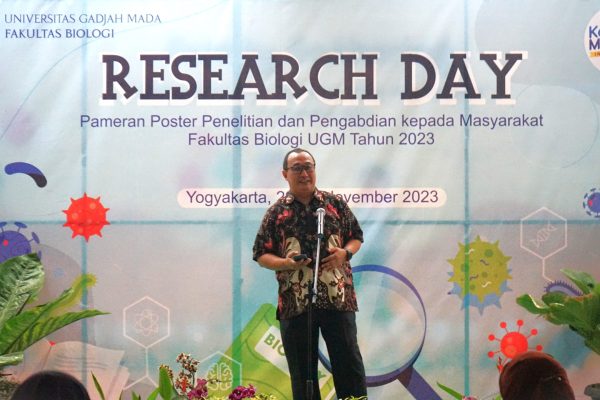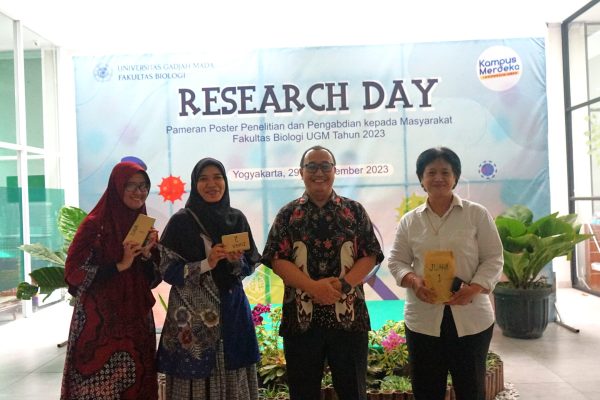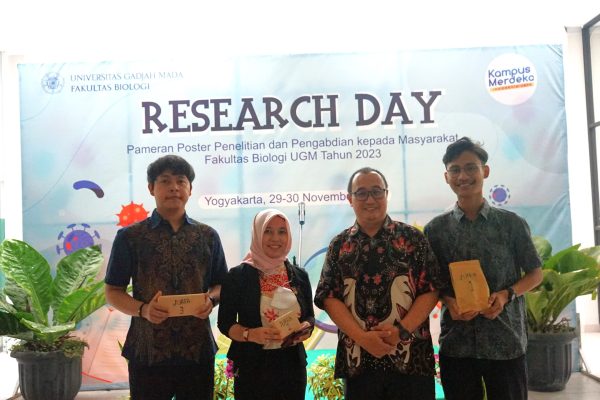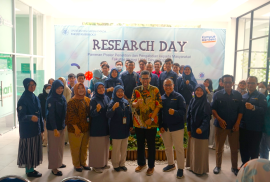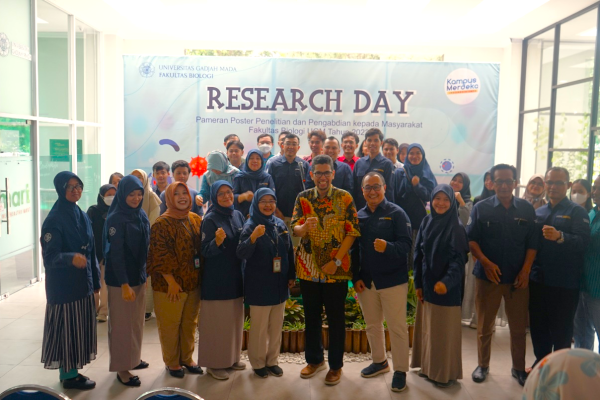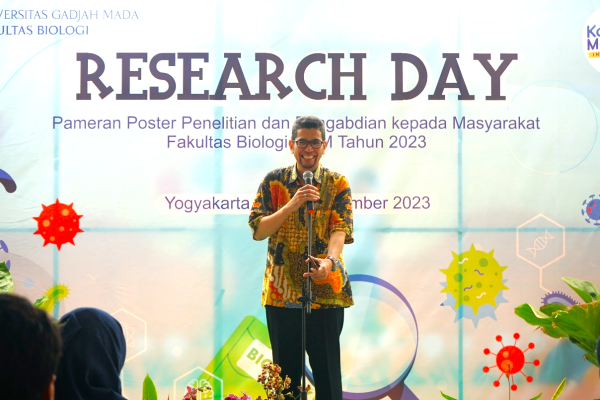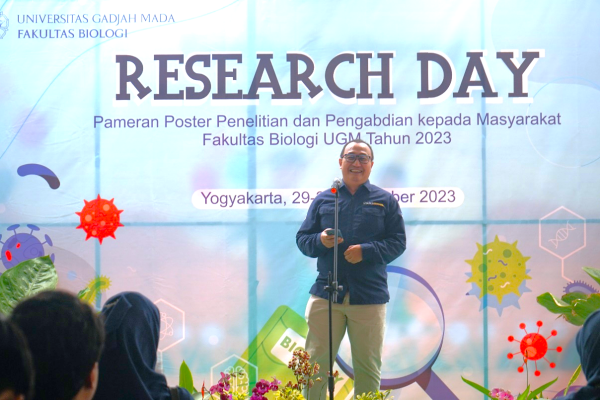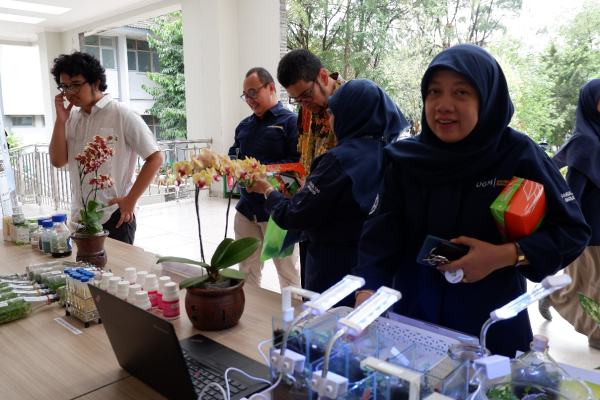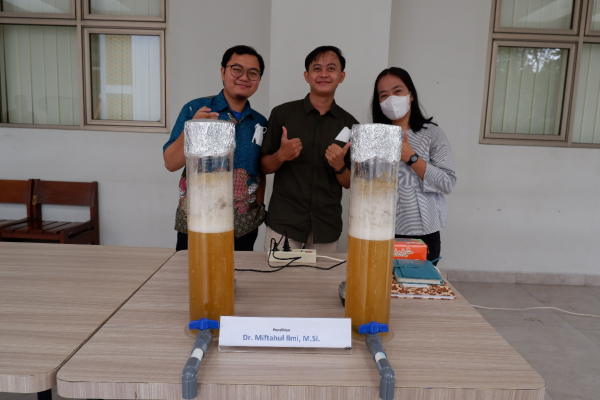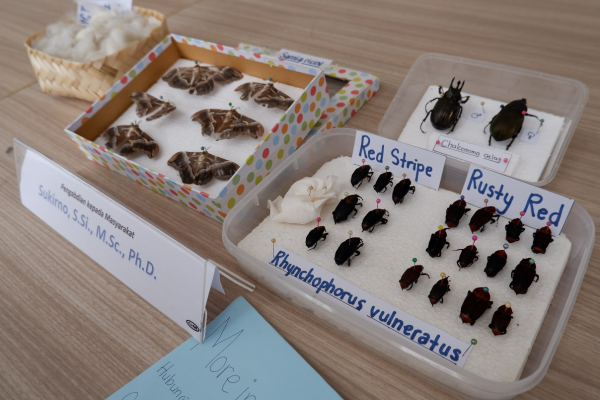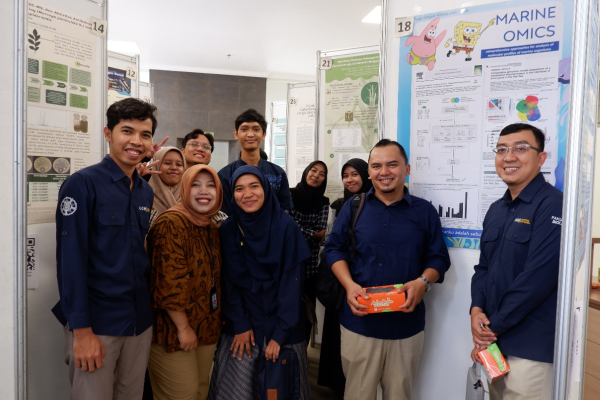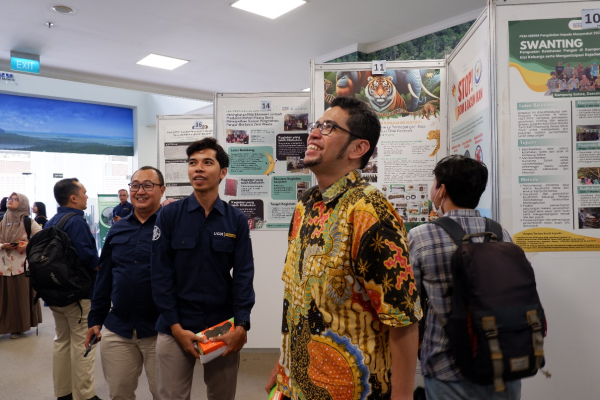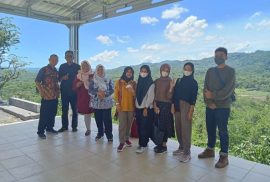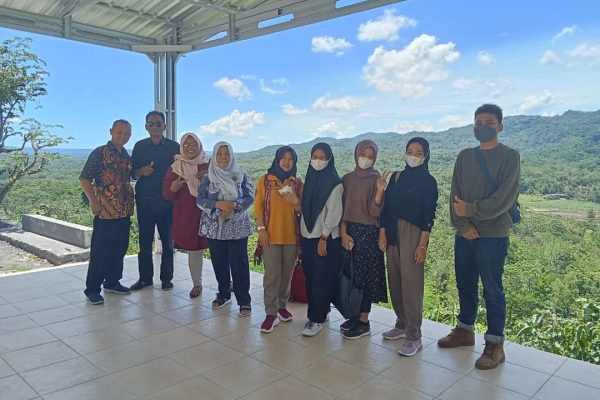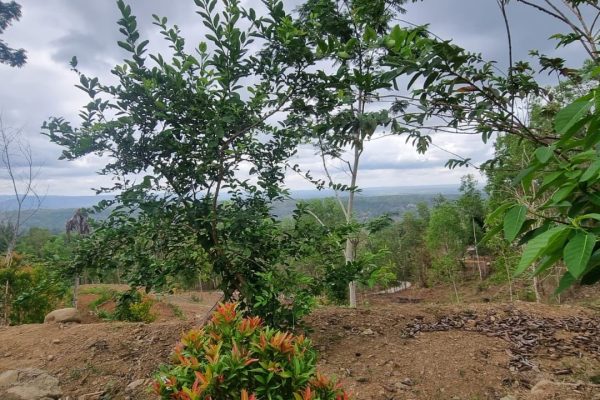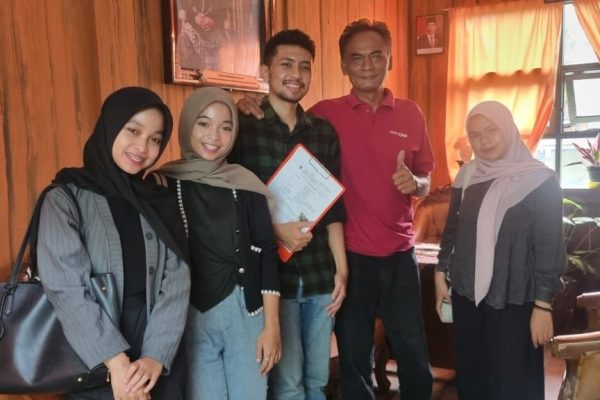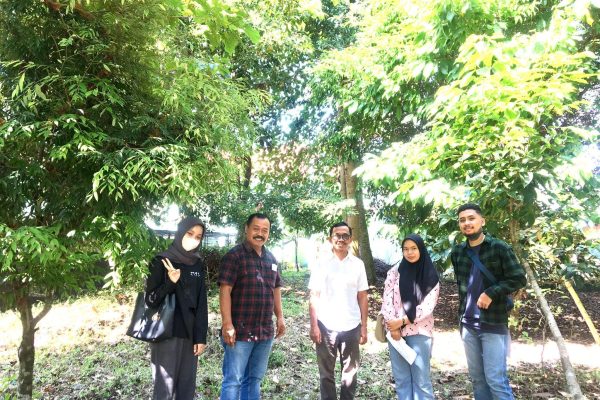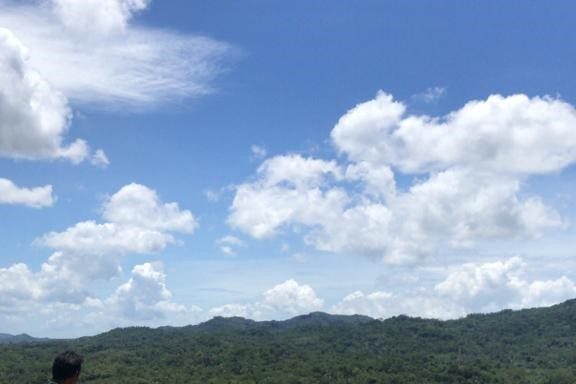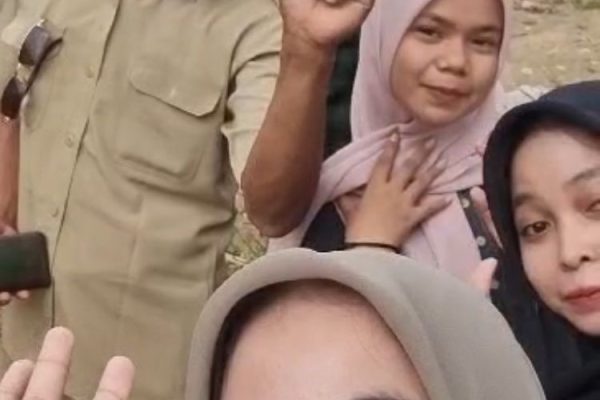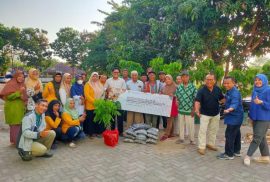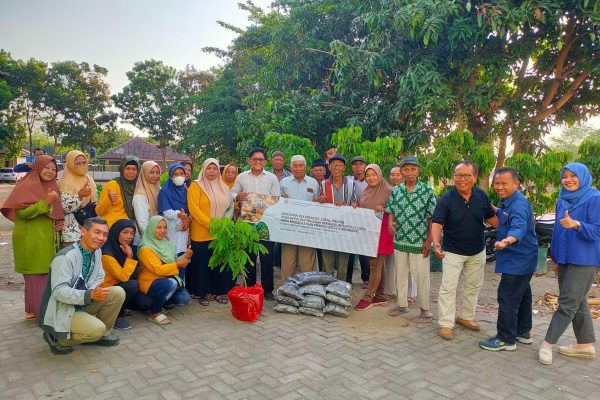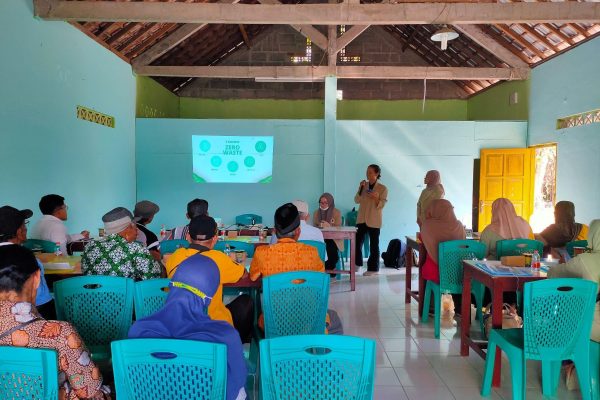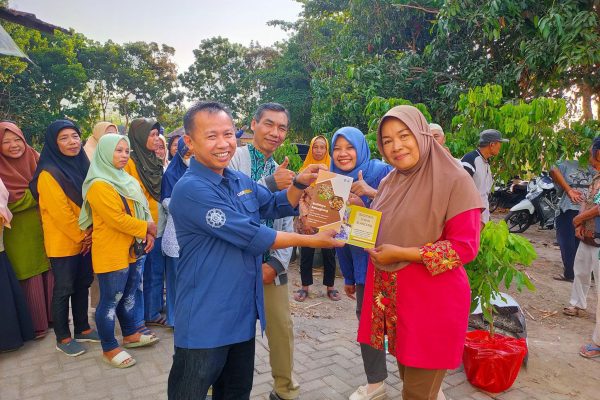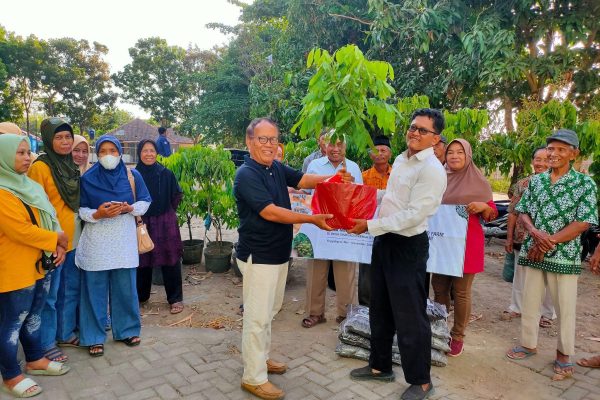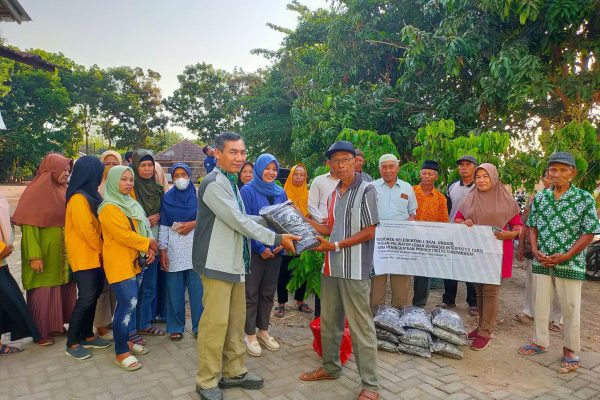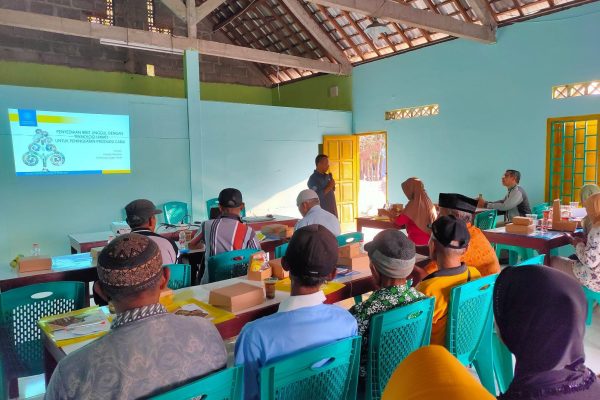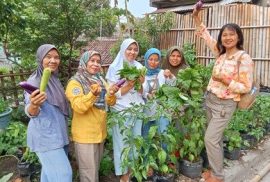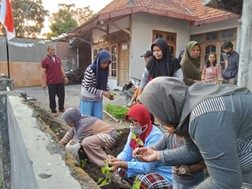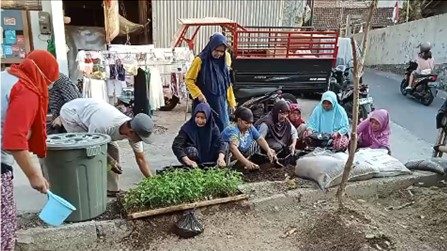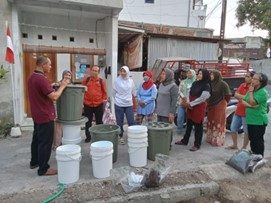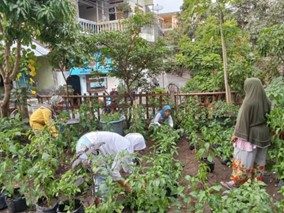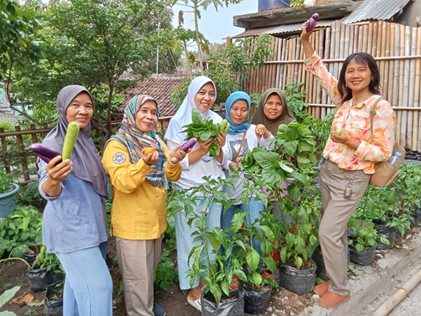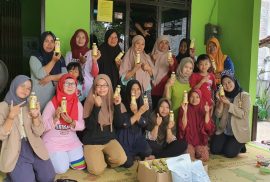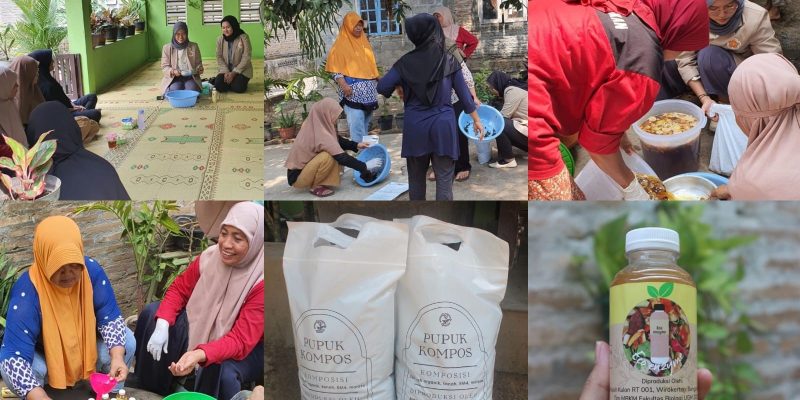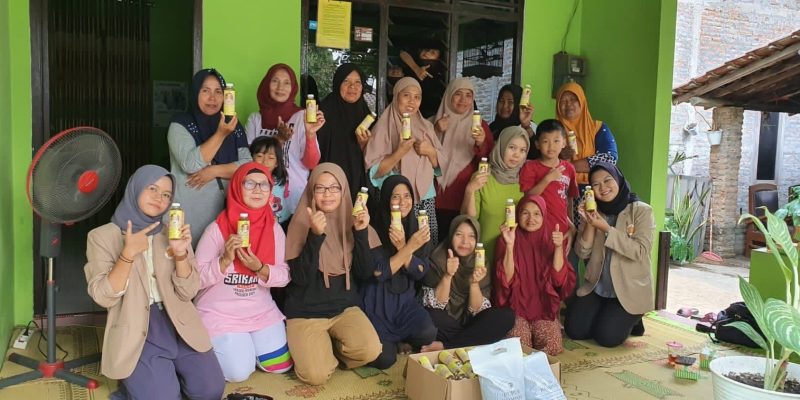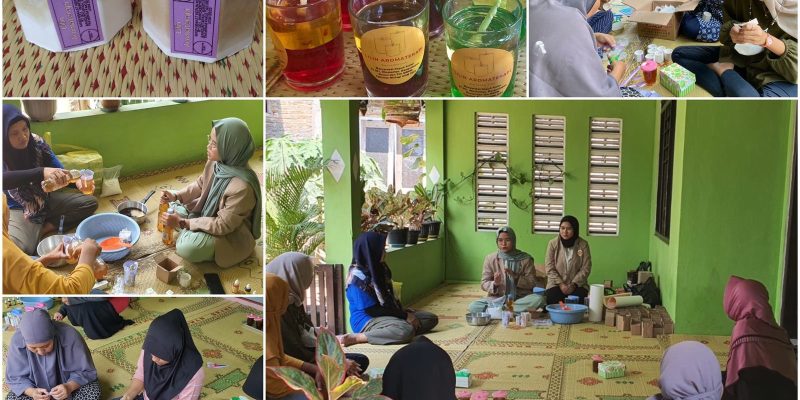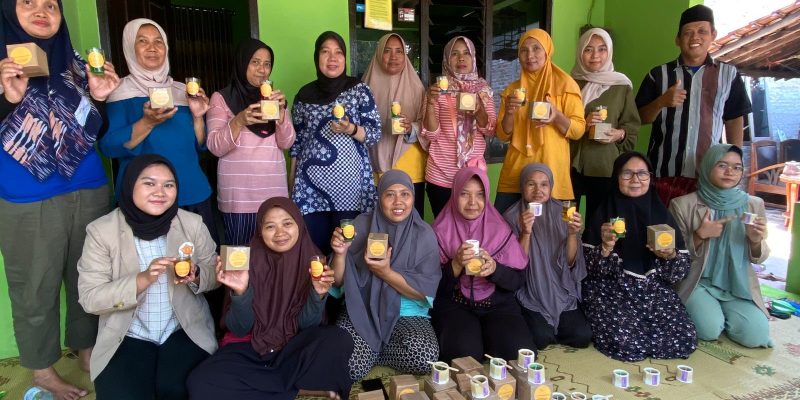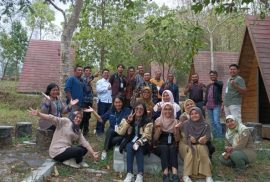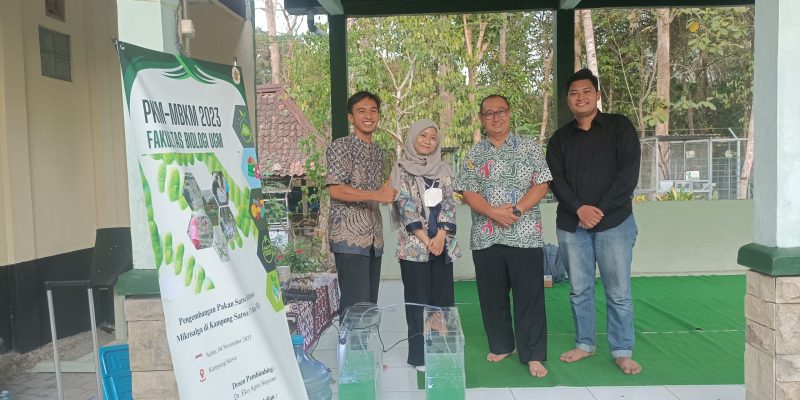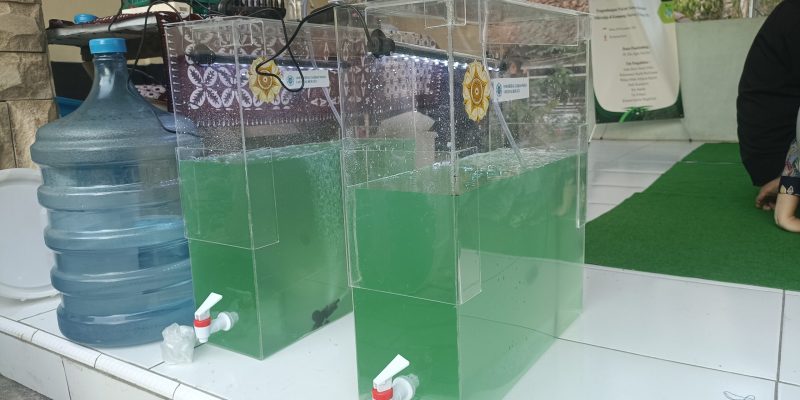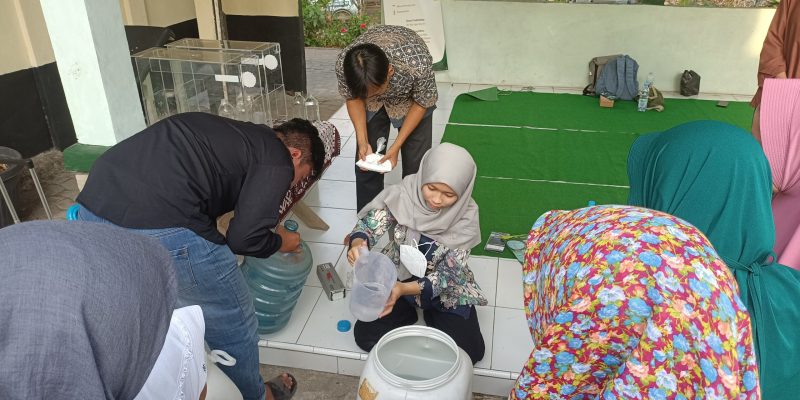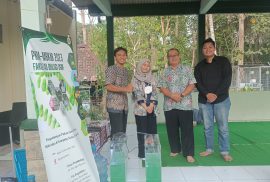KABUT KEBONALAS Manisrenggo Klaten Tourism Village, which was built starting in 2021 and began planting fruit plants together with the MBKM Team Building a Village, Faculty of Biology UGM, which was coordinated by Sukirno, S.Sc., M.Sc., Ph.D. Since 2022, has entered the first harvest period. In November 2023, the first longan harvest was carried out together with MBKM students from the UGM Faculty of Biology together with elements of village society such as all POKDARWIS members, village government officials and PKK groups. On February 28 2024 KABUT KEBONALAS together with the MBKM team held harvest activities and socialization of tourist destination rides to all MUSPIKA Manisrenggo District. In this activity the village government invited Prof. Dr. Budi Setiadi Daryono, M.Sc. as Dean of the Faculty of Biology UGM, Head of Manisrenggo Subdistrict Mr. Slamet, S.H., M.Si., DANRAMIL Manisrenggo Mr. Captain Inf. Sukarman, KAPOLSEK Manisrenggo AKP Fajar Damhudi, S.H., all members of POKDARWIS and elements of PEMDES Kebonalas, as well as the staff of teachers and the Manisrenggo Community Health Center. Thank God, longan, honey star fruit, avocado and crystal guava have entered their first harvest. This activity was also attended by the Coordinator of the PPM KKN team – Muhammad Naufal Dzakwan Luzen and teams from several clusters through the UGM PPM KKN program and the MBKM team Darren Nicholas Rahmanto, Fadilah Rahma Julianty, Joananda Taufik Ardana, and Tamara Sugihara.
This activity opened with a performance of the Gatotkaca Dance by Dik Dhimas and then continued with training for POKDARWIS KABUT KEBONALAS which was attended by resource persons from FK POKDARWIS KLATEN. This activity aims to strengthen POKDARWIS management and explore the village’s potential to be more integrated in MSME tourism villages, local culture and arts, grow networking opportunities, and contribute to the community’s economic growth. Kabut Kebonalas Tourism Village together with the MBKM Team, Faculty of Biology, Gadjah Mada University.
The Kabut Kebonalas tourism awareness group team consists of Mr. Supriyanto, S.Pd. (Village Head), Mr. Robani, S.P. (Chairman of BPD), Mr. Suwadi, S.Pd. (Sekdes), Mr. Sunardi, Mr. Riyanto Wahyudi and others have been approved by the Department of Culture, Youth, Sports and Tourism of Klaten Regency through Decree Number 2 of 2023, accompanied by a lecturer from the UGM Faculty of Biology (Mr. Sukirno, S.Si., M. Sc., Ph.D.) and fruit plant cultivation practitioner, UGM Faculty of Biology (Mr. Yusuf Sulaeman, S.IP).
This activity supports the SDG’S, especially to eradicate poverty (SDG1), create inclusive, safe, resilient and sustainable communities (SDG 11) and to combat climate change (SDG 13).
#SDG 1: Poverty; #SDG 11 Inclusive communities; # SDG 13: Climate change; #UGM Biology

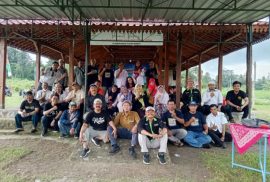
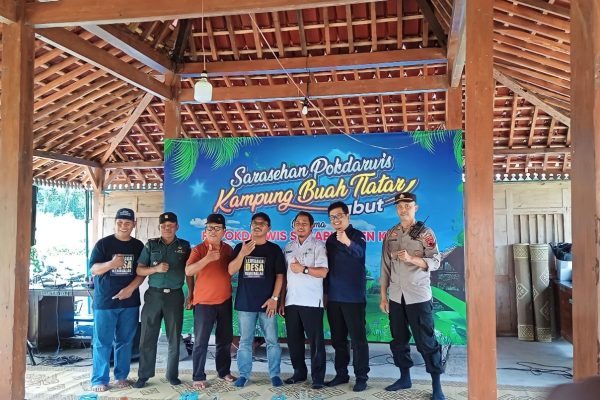
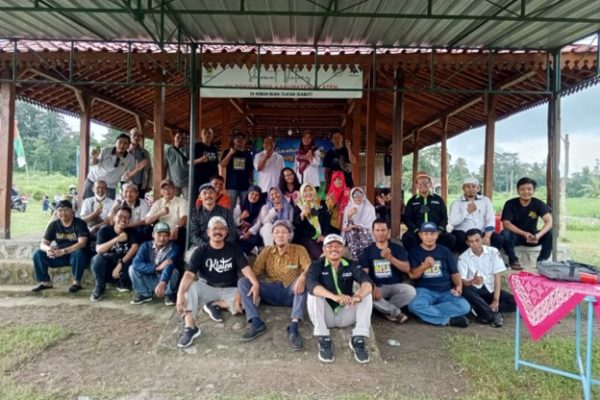
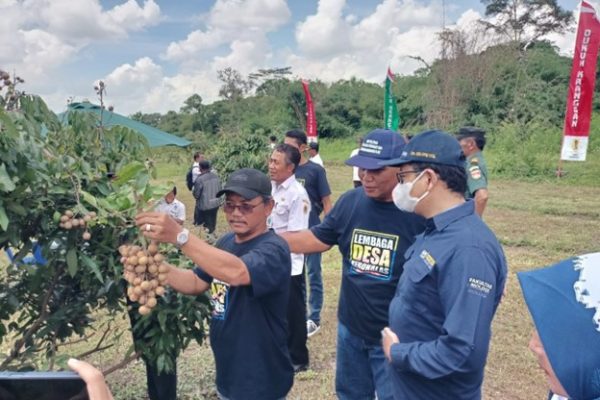
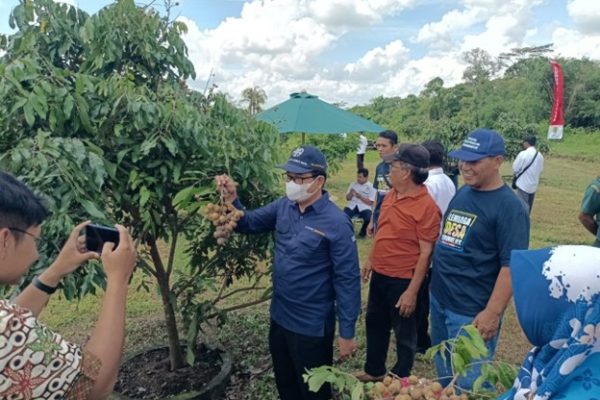
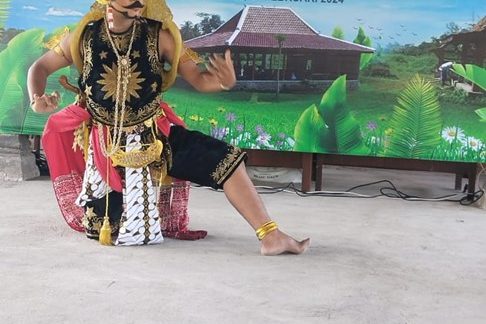
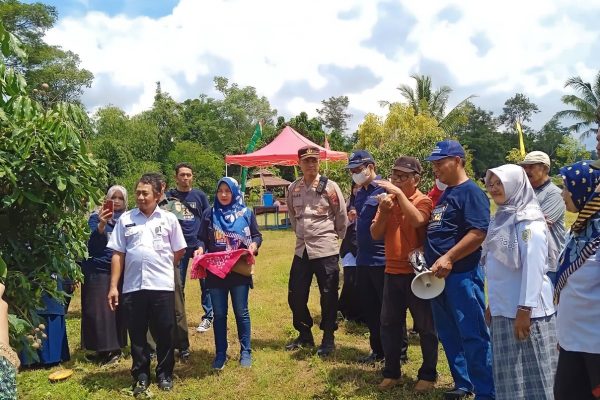
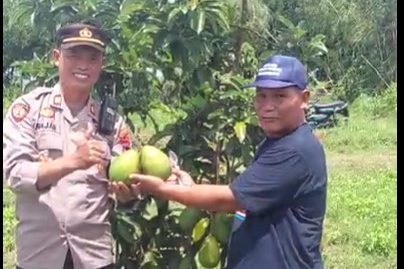
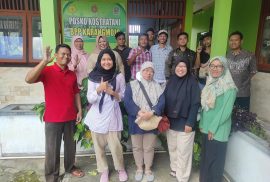
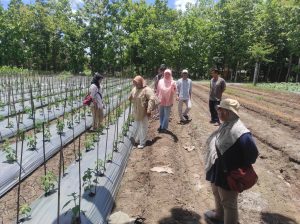
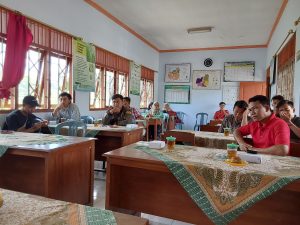 The discussions held during the FGD and field visits covered various topics, including the use of technology in agriculture, organic farming practices, natural resource management, and marketing strategies for agricultural products. The results of these discussions will form the basis for developing more relevant and responsive educational, research, and community service programs tailored to the needs of millennial farmers.
The discussions held during the FGD and field visits covered various topics, including the use of technology in agriculture, organic farming practices, natural resource management, and marketing strategies for agricultural products. The results of these discussions will form the basis for developing more relevant and responsive educational, research, and community service programs tailored to the needs of millennial farmers.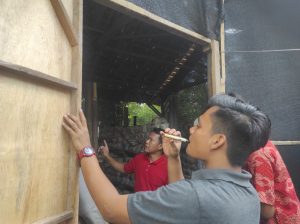 and millennial farmers, bringing tangible positive impacts to the advancement of the agricultural sector in Indonesia. This activity is closely related to several Sustainable Development Goals (SDGs) adopted by the United Nations. The dialogue and collaboration between the Faculty of Biology UGM and millennial farmers can increase farmers’ productivity and income (SDG 1: No Poverty) and support sustainable agriculture that enhances food security and nutrition (SDG 2: Zero Hunger). This initiative also develops more relevant educational programs for millennial farmers (SDG 4: Quality Education), supports economic growth and job creation in the agricultural sector (SDG 8: Decent Work and Economic Growth), and encourages innovation and modernization of agricultural practices (SDG 9: Industry, Innovation, and Infrastructure). The focus on organic farming practices and natural resource management supports sustainable production and consumption (SDG 12: Responsible Consumption and Production), and the sustainable agriculture discussed in the FGD contributes to climate change mitigation (SDG 13: Climate Action). Furthermore, the collaboration between the Faculty of Biology UGM and millennial farmers is a concrete example of partnerships that support the achievement of sustainable development goals (SDG 17: Partnerships for the Goals).
and millennial farmers, bringing tangible positive impacts to the advancement of the agricultural sector in Indonesia. This activity is closely related to several Sustainable Development Goals (SDGs) adopted by the United Nations. The dialogue and collaboration between the Faculty of Biology UGM and millennial farmers can increase farmers’ productivity and income (SDG 1: No Poverty) and support sustainable agriculture that enhances food security and nutrition (SDG 2: Zero Hunger). This initiative also develops more relevant educational programs for millennial farmers (SDG 4: Quality Education), supports economic growth and job creation in the agricultural sector (SDG 8: Decent Work and Economic Growth), and encourages innovation and modernization of agricultural practices (SDG 9: Industry, Innovation, and Infrastructure). The focus on organic farming practices and natural resource management supports sustainable production and consumption (SDG 12: Responsible Consumption and Production), and the sustainable agriculture discussed in the FGD contributes to climate change mitigation (SDG 13: Climate Action). Furthermore, the collaboration between the Faculty of Biology UGM and millennial farmers is a concrete example of partnerships that support the achievement of sustainable development goals (SDG 17: Partnerships for the Goals).